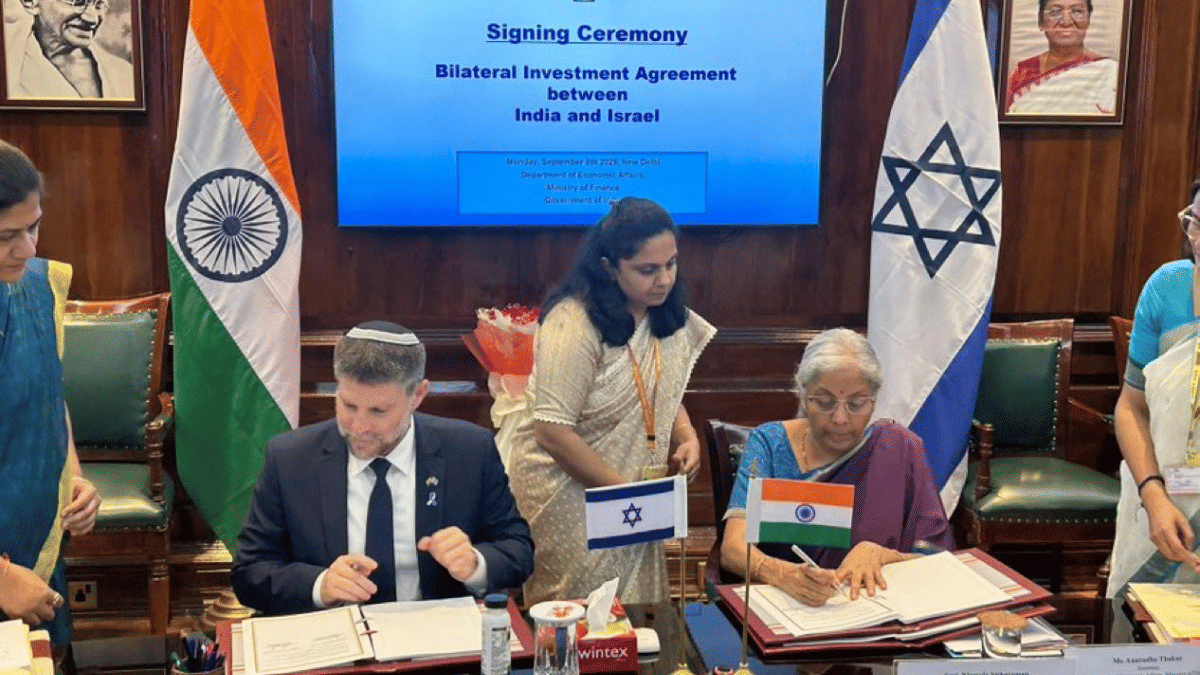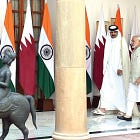In Doha’s Wake, Israel and India Propel IMEC
The agreement sends a message to the Gulf: align with Washington's corridor vision, or risk the repercussions.
Israel and India have signed a bilateral investment agreement during the Israeli Finance Minister’s visit to New Delhi. Described as a “significant milestone”, the accord comes amid growing Gulf engagement with India and follows Israel’s recent air strike targeting Hamas officials in Qatar. The development points to an Israeli bid to consolidate India–Israel ties and, by extension, their Gulf links within the India–Middle East–Europe Economic Corridor (IMEC). Israel’s strike on Doha may also serve as a warning to Qatar over its attempts to straddle both Western- and Eastern-led trade corridors.
India-Israel-GCC Alignment
The India-Israel partnership has strengthened significantly since diplomatic relations were established in 1992. Cooperation spans defence, agriculture, and technology, with bilateral trade reaching $3.9 billion in 2024. India stands as the largest buyer of Israeli weapons, accounting for 42.1% of Israel's arms exports since 2014 and spending over $1 billion annually on military hardware.
New Delhi’s hesitance regarding condemning Israeli conduct reflects this robust relationship: one that prioritises strategic and economic interests. As such, the new bilateral investment agreement seeks to deepen these ties, focusing on innovation and joint ventures. However, India’s balancing act between Israel and its Gulf partners complicates this dynamic.
India’s ties with the GCC, particularly Qatar, are critical. Trade with the Gulf exceeded $162 billion annually in 2024, dwarfing India-Israel trade. Qatar supplies over 40% of India’s liquefied natural gas, and millions of Indian expatriates in the region remit billions yearly. Doha’s strategic partnership with India, upgraded in February of this year, reflects a commitment to bolstering ties.
Israel’s air strike on Doha may have served to strengthen the Indo-Gulf relationship. It has also revealed how India might recalibrate its posture towards Israel. In a rare public rebuke, Prime Minister Narendra Modi condemned the attack as a violation of Qatari sovereignty. The statement underscores India’s imperative to safeguard its Gulf partnerships in pursuit of its IMEC vision.
Towards an Indian Corridor?
As India navigates pressures from Washington and Gulf responses like the Saudi pact, alignment with Qatar may intensify within BRICS and Global South frameworks. At the recent Shanghai Cooperation Organisation Summit, India (full member) and Qatar (dialogue partner) endorsed BRICS New Development Bank expansion; India, a founder, backed accessions like Colombia and Uzbekistan in July, while Doha eyes membership for dollar-alternative funding in sustainable projects.
This convergence could fortify IMEC alternatives, prioritising multipolar resilience over Western dependencies, with the Indo-Israeli accord serving as a tactical hedge amid escalating Gulf realignments.




